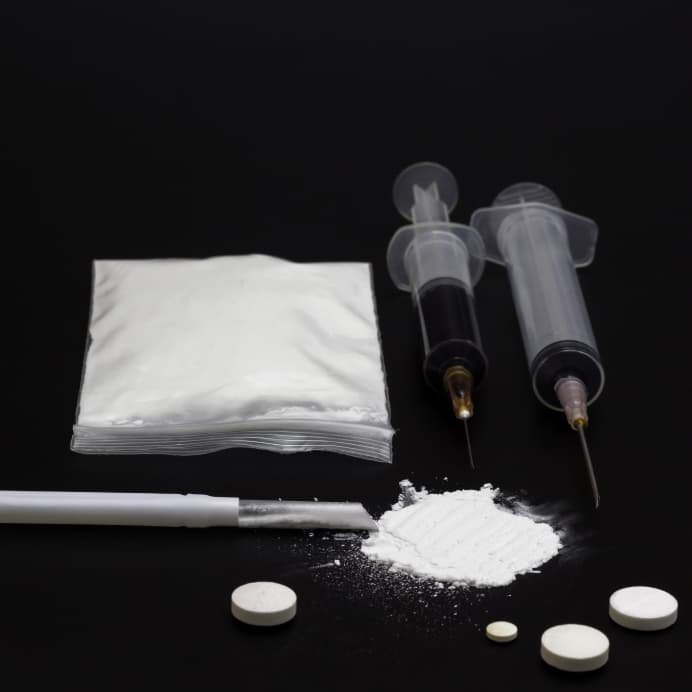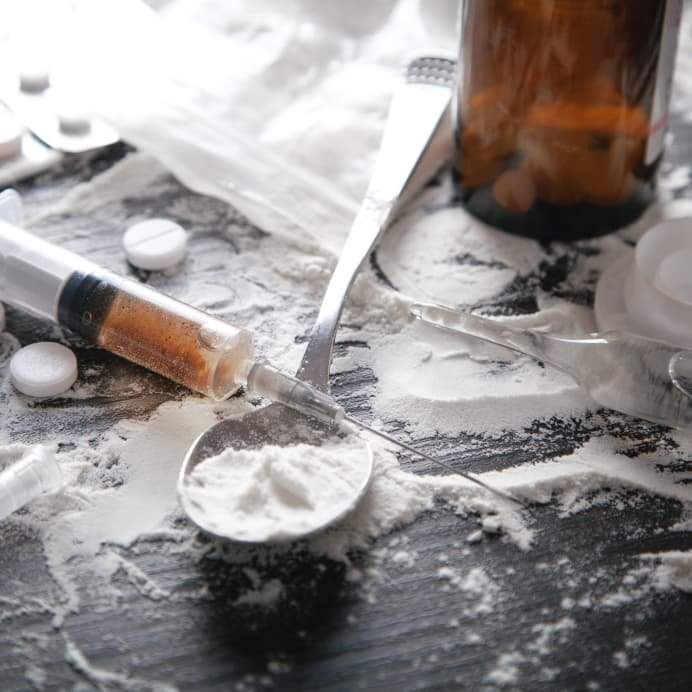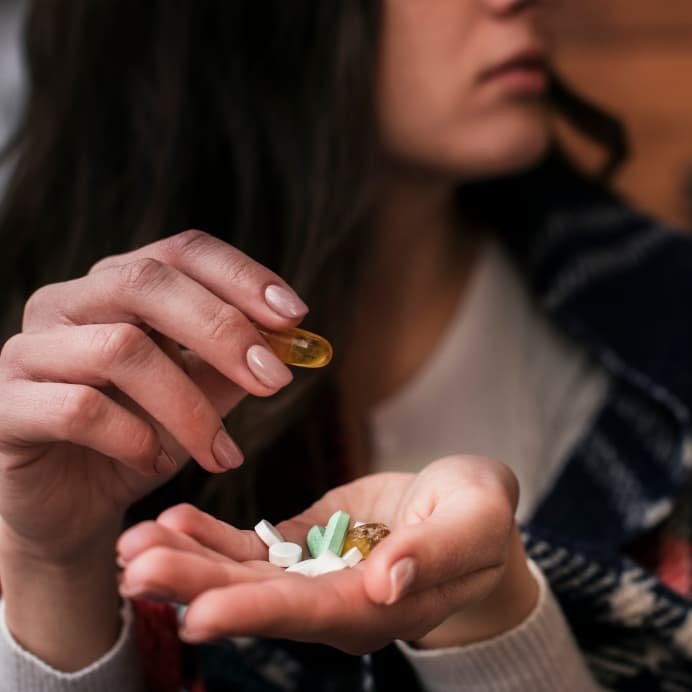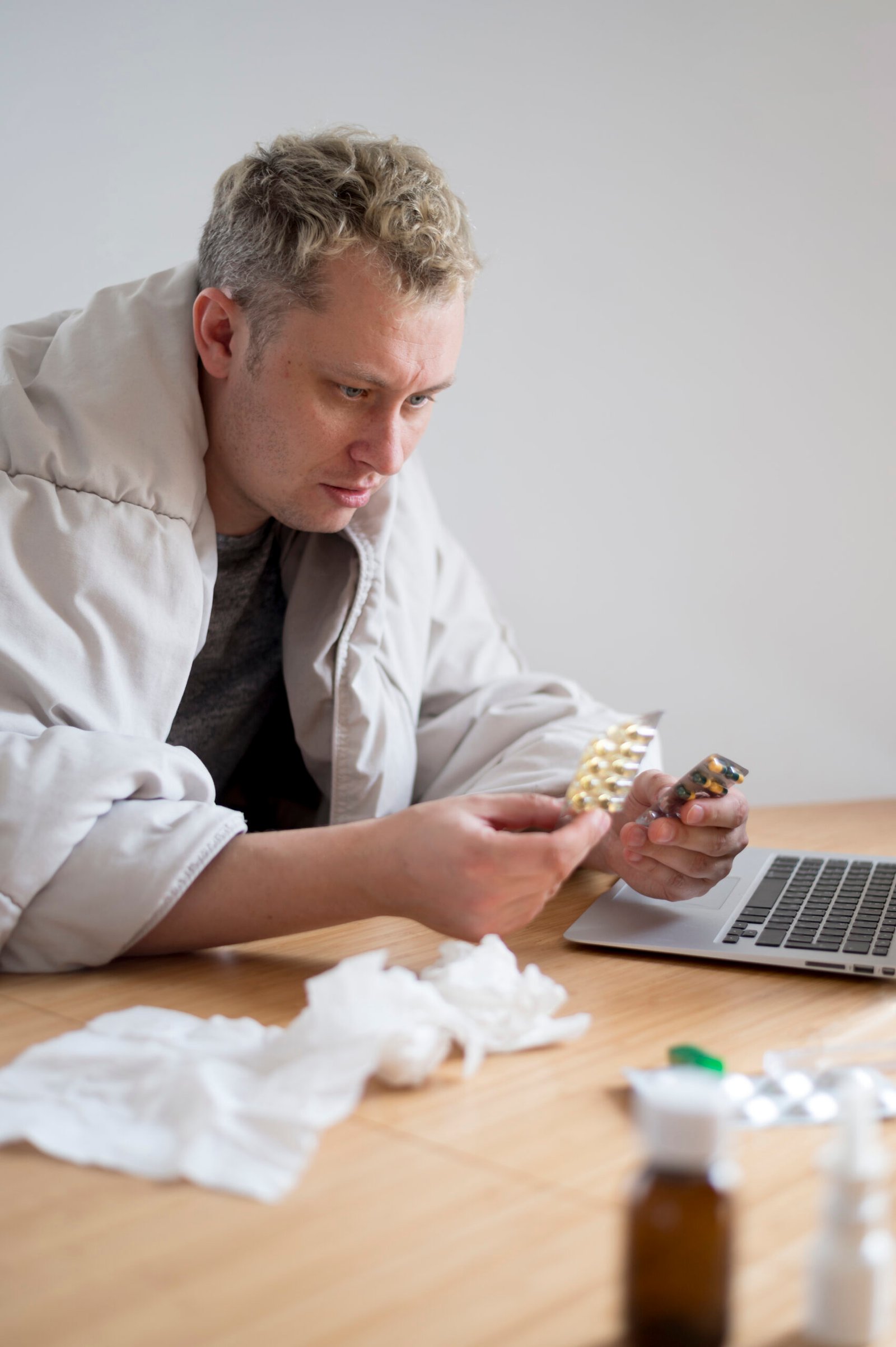Drug Addiction Treatment
Drug Addiction Treatment
Comprehensive Prescription Drug Addiction Treatment
Prescription drug addiction is a significant and growing concern, affecting millions worldwide. Our tailored program delves into the intricacies of this addiction, providing a supportive environment that combines medical assistance with therapeutic interventions. Our goal is to guide individuals toward breaking free from dependence on prescription medications and achieving lasting recovery.
Understanding Prescription Drug Addiction
Prescription drug addiction involves the compulsive and problematic use of medications prescribed by healthcare professionals to treat various medical conditions and symptoms. While these medications are intended for therapeutic purposes, misuse or use inconsistent with the prescription can lead to addiction. Commonly implicated in prescription drug addiction are opioids for pain management, benzodiazepines for anxiety or sleep disorders, and stimulants for attention deficit hyperactivity disorder (ADHD).


Causes of Prescription Drug Addiction
The causes of prescription drug addiction are multifaceted, involving:
- Chronic Pain Management: Individuals prescribed opioids for chronic pain may become dependent on the medication, leading to misuse and addiction.
- Mental Health Conditions: People with anxiety, depression, or other mental health issues may misuse prescription medications to self-medicate, increasing the risk of addiction.
- Recreational Use: Some individuals use prescription drugs recreationally to achieve a euphoric high or enhanced performance, leading to dependence.
- Genetic Predisposition: Genetic factors may make some individuals more susceptible to addiction.
- Environmental Influences: Stressful life circumstances, peer pressure, and exposure to environments where drug use is normalized can contribute to the development of addiction.
Warning Signs of Prescription Drug Addiction
Recognizing the warning signs of prescription drug addiction is crucial for early intervention and effective treatment. Here are some common indicators:
- Increased Tolerance: A need for higher doses over time to achieve the same effects or reduced effectiveness with the regular dosage.
- Withdrawal Symptoms: Physical and psychological symptoms when attempting to stop or reduce medication use, including restlessness, cravings, nausea, insomnia, or irritability.
- Compulsive Use: An intense, uncontrollable urge to use medication regularly, even when not medically necessary or exceeding the prescribed dose.
- Neglected Responsibilities: Neglecting work, school, or personal obligations due to preoccupation with obtaining and using medication.
- Social Withdrawal: Withdrawing from friends, family, and social activities, preferring isolation and secrecy around medication use.
- Doctor Shopping: Seeking prescriptions from multiple healthcare providers or engaging in dishonest practices to obtain more medication.

Why Choose 911 Detox recovery for Alcohol Rehabilitation?
Struggling with alcohol addiction can feel isolating and overwhelming, but you don’t have to go through it alone. At 911 Detox Center, we offer a transformative journey towards lasting sobriety that goes beyond just detox.

Detox
Our journey begins with a safe and comfortable, medically supervised detox. We understand the challenges of withdrawal, so we’ll be by your side, managing symptoms and addressing underlying triggers.
Residential
Immerse yourself in a supportive and structured program designed for healing and self-discovery. Through individual therapy sessions, you’ll delve deeper into your story, gaining insights and tools for lasting change.
Recovery Maintenance
Our commitment extends beyond treatment. We offer ongoing support groups, connecting you with others who understand your struggles and celebrate your successes.
Health Complications with Prescription Drug Addiction
Prescription drug addiction can lead to severe health consequences. Understanding the potential health complications associated with this addiction is crucial for raising awareness and promoting early intervention and treatment.
- Overdose: Taking prescription drugs in higher doses or combining them with other substances can lead to respiratory depression, coma, or death.
- Physical Health Problems: Each drug poses unique health risks, from constipation and hormonal imbalances to respiratory issues, high blood pressure, and cardiovascular complications.
- Mental Health Disorders: Substance abuse can worsen symptoms of depression, anxiety, and mood disorders, perpetuating a cycle of self-medication and escalating addiction.
- Increased Risk of Accidents: Impaired cognitive function increases the risk of accidents, including falls, crashes, and other injuries with lasting consequences.
- Social Problems: Addiction strains relationships, leading to withdrawal from social activities and isolation to conceal substance abuse.
- Withdrawal Symptoms: Stopping or reducing drug use may result in physically and psychologically challenging withdrawal symptoms, such as flu-like symptoms, anxiety, insomnia, irritability, and intense cravings.

Treatment for Prescription Drug Addiction
Effective treatment for prescription drug addiction typically involves a combination of medical, psychological, and social interventions. Here’s an overview of our comprehensive treatment approach:
- Medical Detoxification: The first step is medically supervised detoxification to safely manage withdrawal symptoms and reduce health risks.
- Behavioral Therapy: Cognitive-Behavioral Therapy (CBT) helps individuals understand the root causes of their addiction, develop coping strategies, and change negative thought patterns.
- Counseling: Individual and group counseling sessions provide a supportive environment for discussing challenges, sharing experiences, and gaining insights.
- Support Groups: Participation in support groups like Narcotics Anonymous (NA) offers peer support, encouragement, and accountability throughout the recovery journey.
- Medication-Assisted Treatment (MAT): Certain medications can help manage withdrawal symptoms and reduce cravings. These medications are most effective when combined with counseling and behavioral therapies.
- Holistic Therapies: Incorporating holistic approaches such as mindfulness, meditation, yoga, and exercise enhances overall well-being and supports long-term recovery.
- Aftercare Planning: Developing a comprehensive aftercare plan is crucial for maintaining sobriety. This includes ongoing counseling, support group participation, and strategies for managing triggers and stress.
Our Prescription Drug Addiction Treatment Program
At our center, we are dedicated to providing personalized care for individuals struggling with prescription drug addiction. Our team of experienced professionals offers a supportive and compassionate environment where individuals can focus on their recovery journey.
- Comprehensive Assessment: We conduct thorough assessments to understand the severity of the addiction, the individual’s support system, and their treatment history, ensuring a tailored approach.
- Evidence-Based Interventions: Our program is based on the latest research and evidence-based practices, ensuring the highest standards of care.
- Integrated Treatment Plans: We address both the physical and psychological aspects of addiction, providing a holistic approach to recovery.
- Family Involvement: We recognize the importance of family support in the recovery process. Our program includes family therapy sessions to help rebuild relationships and provide education about addiction.
Taking the First Step
Overcoming prescription drug addiction is a challenging but achievable goal with the right support and treatment. If you or a loved one is struggling with prescription drug addiction, reach out to our Prescription Drug Addiction Treatment center at (409) 9000 911. Our team is here to help you take the first step toward a healthier, drug-free life.

